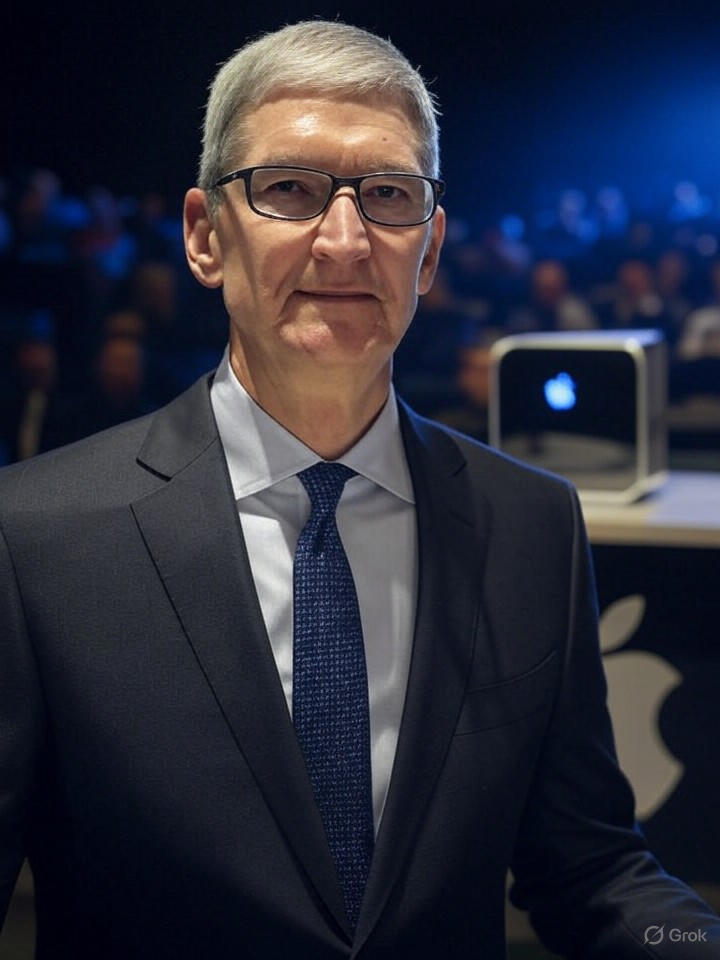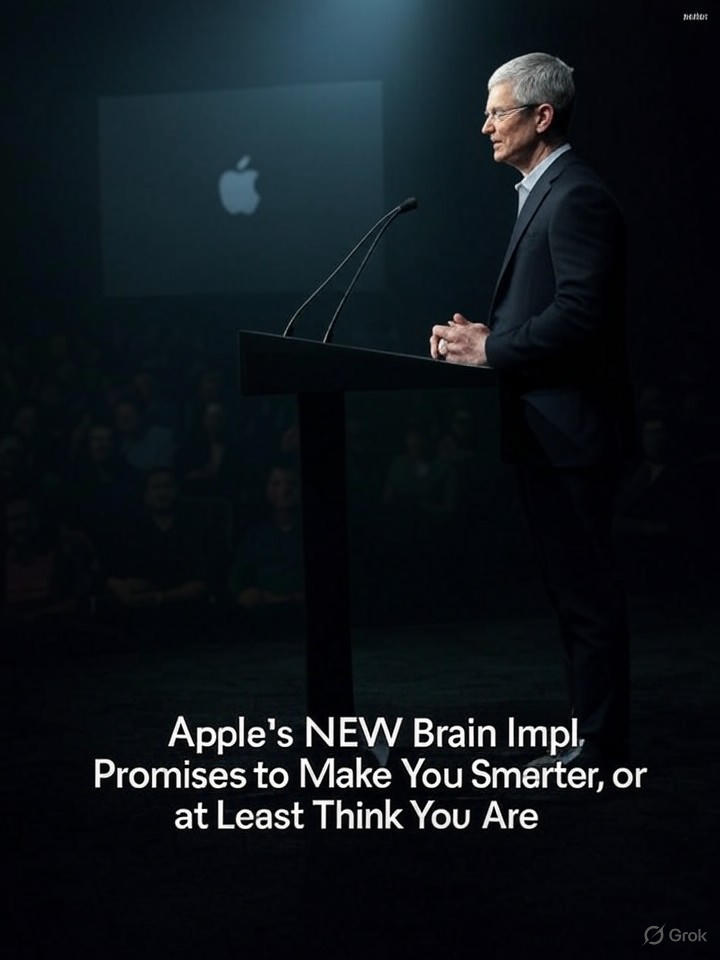CUPERTINO, CA – In a keynote that had tech enthusiasts drooling and ethicists dialing their lawyers, Apple CEO Tim Cook unveiled the iBrain, a revolutionary neural implant designed to 'enhance cognitive functions' or, as skeptics put it, 'turn your skull into a subscription service.' The device, which promises to boost IQ by up to 20 points, was demonstrated live on stage where Cook's thoughts were projected onto a giant screen, auto-correcting 'I like pie' to 'I appreciate pi.'
According to Apple's marketing spiel, the iBrain integrates seamlessly with your existing neural network, using advanced AI to predict and refine your thoughts before they even form. 'Imagine never having a dumb idea again,' Cook enthused, while the demo conveniently glossed over the part where it changed 'revolutionary product' to 'revenue-generating product.' Early adopters are already raving, or at least that's what their iBrain-compelled social media posts claim.
But not everyone is sold on the idea of letting Big Tech tinker with their gray matter. Privacy advocates warn that the iBrain could collect data on your innermost thoughts, selling them to advertisers who'll know you crave tacos before you do. One critic quipped, 'It's like having Siri in your head, but instead of setting reminders, she's judging your life choices and upselling you on AppleCare for your synapses.'
The implant procedure is described as 'minimally invasive,' which in Apple-speak means a quick trip to your local Genius Bar where a certified technician drills a small hole in your head and inserts the chip. Post-op, users report enhanced focus, though side effects include involuntary humming of the Apple startup chime and an inexplicable urge to buy more AirPods. 'I feel smarter already,' said one beta tester, whose thoughts were auto-corrected mid-sentence to 'I feel like buying the new iPhone.'
Competitors aren't taking this lying down. Google is rumored to be developing its own brain chip called 'MindSearch,' which will interrupt your thoughts with sponsored ads, while Meta's version promises to turn your dreams into virtual reality status updates. In the race to monetize human consciousness, Apple seems to have a head start – pun very much intended.
As with all Apple products, the iBrain comes with a hefty price tag and requires a monthly subscription for 'premium thoughts.' Free tier users get basic auto-correction, but upgrading unlocks features like 'Wit Mode' for instant sarcasm generation. Critics argue this creates a class divide between the intellectually augmented elite and the rest of us plebs stuck with our factory-installed brains.
In a twist that surprised no one, the iBrain is only compatible with other Apple devices, meaning you'll need an iPhone to sync your thoughts and an Apple Watch to monitor your brainwaves. 'It's ecosystem integration at its finest,' Cook beamed, while conveniently ignoring questions about what happens if the battery dies mid-thought.
Ultimately, whether the iBrain makes you smarter or just convinces you that you are remains to be seen. But in a world where our phones already know us better than we know ourselves, planting a chip in our heads might just be the next logical step – or the plot of a dystopian sci-fi flick. Either way, Apple's stock is up, and that's all that really matters in Cupertino.

